The rise of Rishi Sunak, the most popular politician in Britain today
Although his ascent through British politics has been exceptionally fast, he hasn’t quite ‘come from nowhere’. John Rentoul tells the story of the ‘bright boy who would always go on to great things’

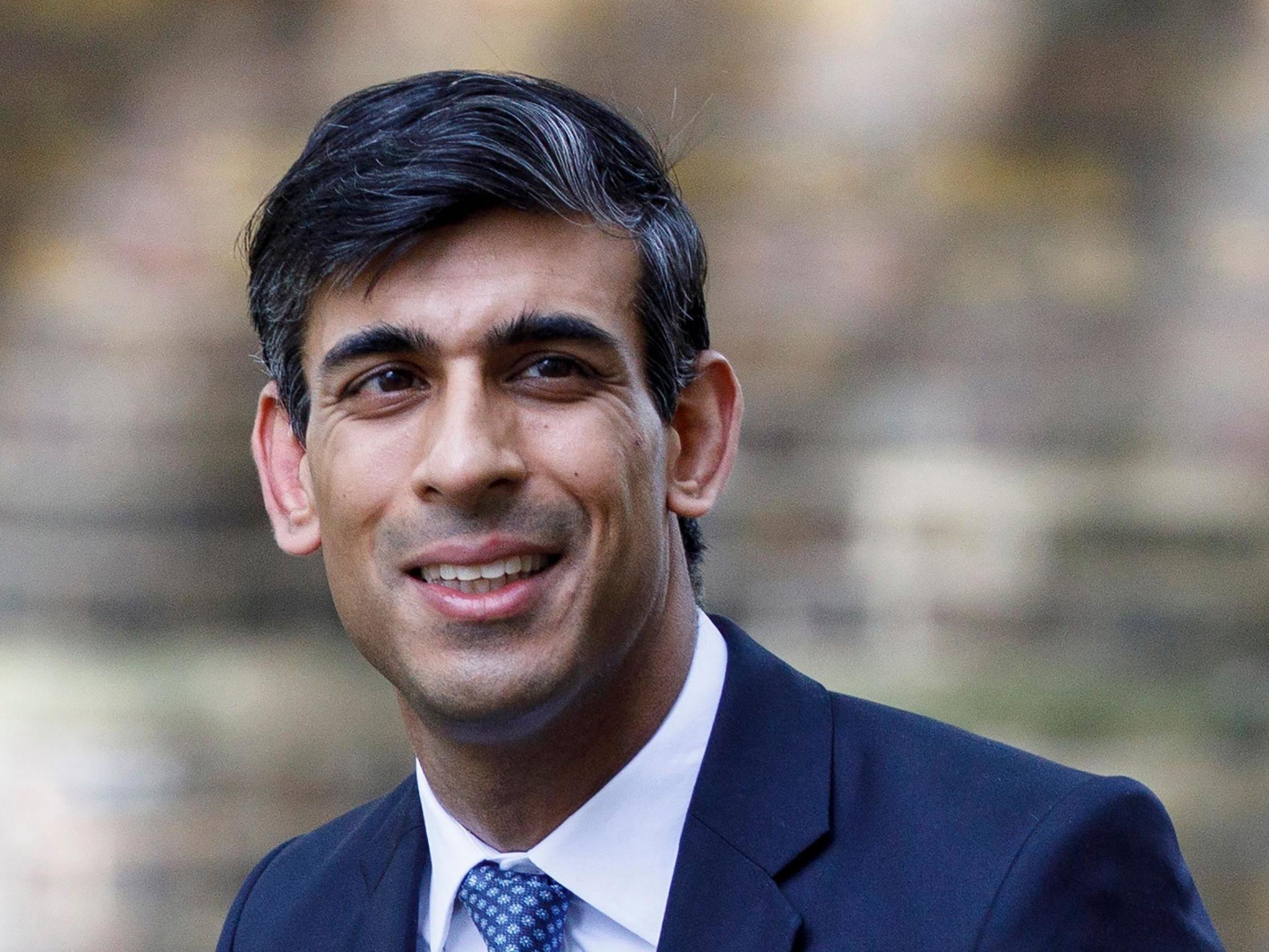
Your support helps us to tell the story
From reproductive rights to climate change to Big Tech, The Independent is on the ground when the story is developing. Whether it's investigating the financials of Elon Musk's pro-Trump PAC or producing our latest documentary, 'The A Word', which shines a light on the American women fighting for reproductive rights, we know how important it is to parse out the facts from the messaging.
At such a critical moment in US history, we need reporters on the ground. Your donation allows us to keep sending journalists to speak to both sides of the story.
The Independent is trusted by Americans across the entire political spectrum. And unlike many other quality news outlets, we choose not to lock Americans out of our reporting and analysis with paywalls. We believe quality journalism should be available to everyone, paid for by those who can afford it.
Your support makes all the difference.It turns out that I know Rishi Sunak’s world, a little. He was married in Bangalore in 2009, because his wife’s family is from there, and her father’s business, Infosys, is based there. I was brought up in the city because my father was a minister in the Church of South India. So Sunak and I are familiar with the three gold lions on the top of the Vidhana Soudha, the seat of the Karnataka state government my father used to call the Banana Soda. And I know a little about the global Indian plutocrats who are equally at home in Bangalore, London and California.
I know about the vegetarian wedding menu of idlis served on plantain leaves, and the sort of people who would have been there: the tech millionaires and billionaires of the south India computer industry.
So although his rise in British politics has been exceptionally fast, he hasn’t quite “come from nowhere”. I know the kind of high-achieving, non-beef-eating, teetotal Hindu background he comes from. I knew he was able and ambitious, but I thought, frankly, that being known as the richest MP in the House of Commons might hold him back.
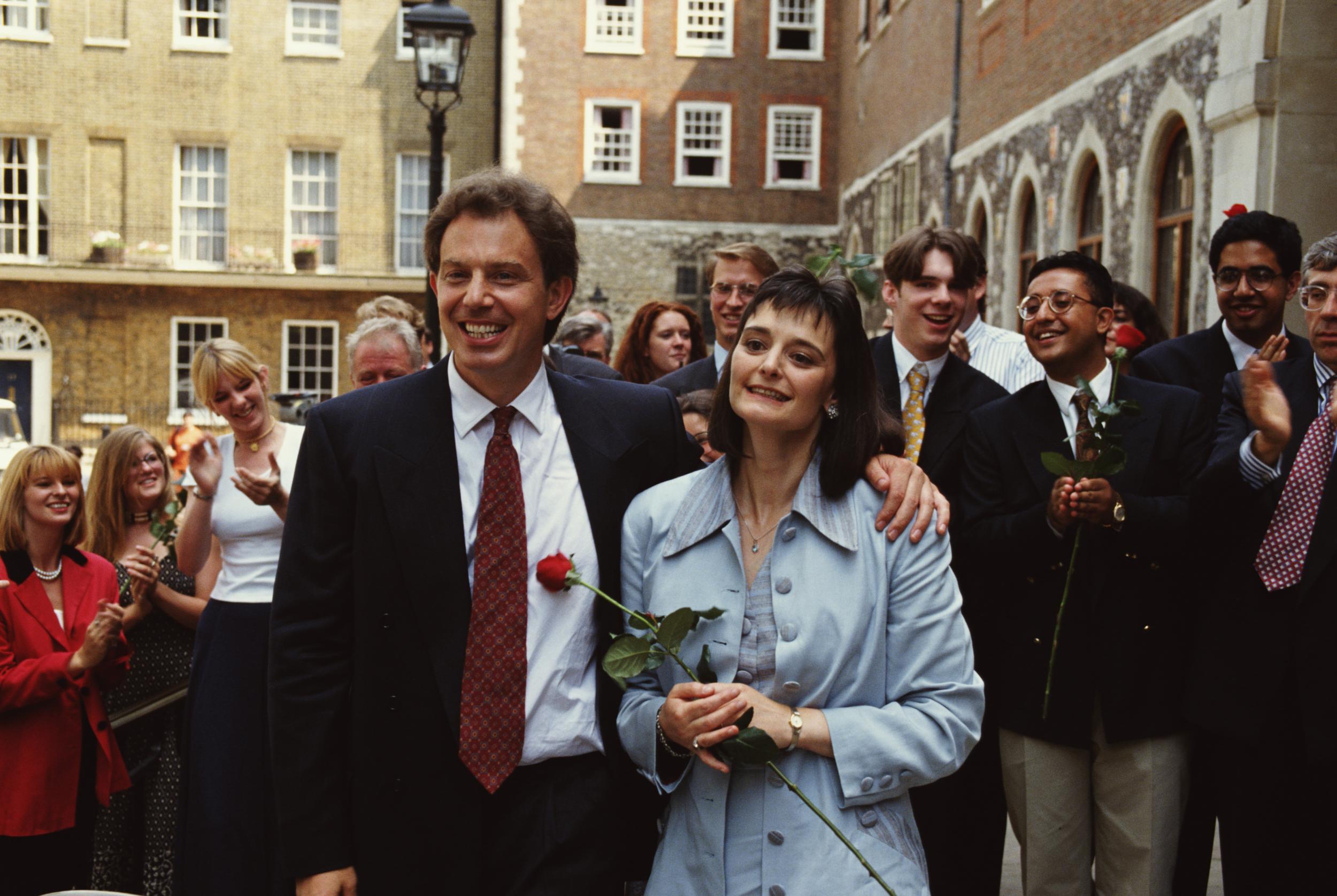
Instead, something has happened to him that I have seen only twice in a lifetime reporting on politics. It happened to Tony Blair in 1992-93, and to David Cameron in 2005, when a promising but untested, cautious and tentative politician suddenly grew to fill the space offered to them by a historic opportunity. Blair suddenly became the best communicator in British politics, with a message for the times: “Tough on crime, tough on the causes of crime.” Twelve years later Cameron leapt to the fore with a similar fluency and something new to say: “There is such a thing as society; it’s just not the same thing as the state.”
Now Sunak has done it. Thrust from the status of merely “attending cabinet” to chancellor of the exchequer in February, he found himself five weeks later facing the biggest economic crisis since the war – and he rose to the challenge. I had been rude about him during the election campaign, when as an early sign of Boris Johnson’s favour he was sent in to do battle on the prime minister’s behalf in the TV debates. In the first debate, I said he “sounded like a satnav reading out a Tory press release”. In the second, I said he was “super-briefed and super-bland”. But when he delivered the Budget on 11 March, just as the seriousness of the coronavirus pandemic was dawning, I commented: “Sunak is completely transformed from the timid, pleasant and robotic performance in TV debates during the election.”
His speech was a triumph, and by the time he sat down, ‘the prime minister beamed like a doggie handler whose prized pup had just won best in show’
He started off nervously, but according to Henry Deedes, the Daily Mail sketchwriter, he looked up and exchanged smiles with his wife in the gallery. “After that, all anxiety seemed to melt away.” The speech was a triumph, and by the time he sat down, “the prime minister beamed like a doggie handler whose prized pup had just won best in show”.
He responded to the escalating crisis over the next few days with even bolder measures and grander rhetoric. When he announced the huge job retention scheme, a mere nine days after the Budget, one line rang like a bell: “We want to look back on this time and remember how we thought first of others and acted with decency.” He found the words, and delivered them with straightforward clarity, at a time when the prime minister, who built his whole career on wordcraft, seemed to struggle.
James Kirkup in The Spectator thought Sunak’s performance that day was “one of the most impressive I’ve seen from a British politician in more than 20 years in and around Westminster. I watched Tony Blair, Gordon Brown and David Cameron at their best, generally in times of adversity, when the country craved the sense of comfort that comes from the feeling that the people in charge know what they are doing and are calmly getting on with it. Sunak’s nerveless poise today ranks alongside those moments as an act of infectious self-assurance, not least because the stakes he was playing for are at least as high as those on the table at any point in the last generation.”
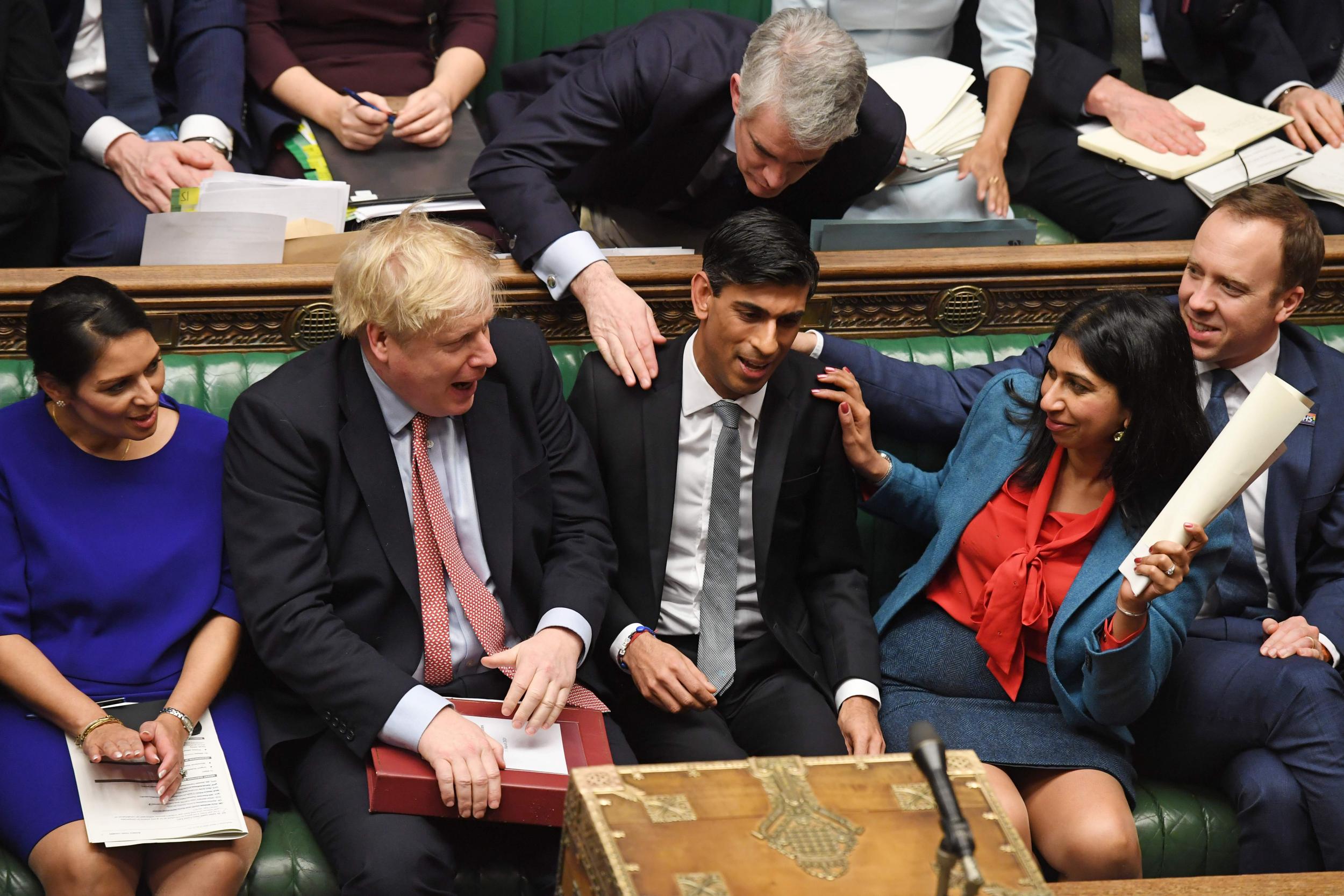
The wider public, too, was taken aback in admiration. In a poll immediately after announcing that the state, which suddenly was the same thing as society, would step in to pay the wages of millions, he had a net favourable rating of plus 49: YouGov found 60 per cent said they had a “favourable opinion” of him and just 11 per cent “unfavourable”. Last week, even after two months of support for the government generally drifting downwards, he was still on plus 35 (54 per cent favourable against 19 per cent unfavourable). He was, embarrassingly, a long way ahead of the prime minister, on plus seven, and Keir Starmer, the new leader of the opposition, on plus nine.
“So far,” commented the Financial Times, “there is no suggestion that Mr Johnson is jealous.” The newspaper quoted a Tory official who said: “Number 10 knows that if Rishi’s doing well, it’s good for the whole government.” That will not last for ever.
'So far, there is no suggestion that Mr Johnson is jealous. Number 10 knows that if Rishi’s doing well, it’s good for the whole government' ... That will not last for ever
Sunak is one of those politicians, as my colleague Tom Peck has observed, who makes it look like luck that the window hole of the house-front falls on them. But clearly, it is more than just luck. And there is more to it, too, than the easy explanation that he is handing out sums of public money beyond the imagination funded on the never-never. “He’s popular because he’s doing what people don’t expect a Tory chancellor to do,” says a Conservative MP. He worked with the best minds of the Treasury to devise the response; he knew what he was doing and believed in it; and as a result he found his voice.
The voice is something. Ever since the Conservative Party suffered its worst thrashing in its history in 1997, it has been looking for its answer to Tony Blair. Cameron was the “heir to Blair” in many ways: modern, articulate, compassionate. But he has a plummy voice, and could never quite shake off the aura of traditionalist Tory privilege. When Sunak delivered the Budget, the Conservative Party finally found its echo of Blair: the pleasant timbre, the classless accent, the strong delivery of platitudes that seem above party politics. “I will do whatever it takes”; “the Conservatives are the real workers’ party”; “if the country needs it, we will build it.”
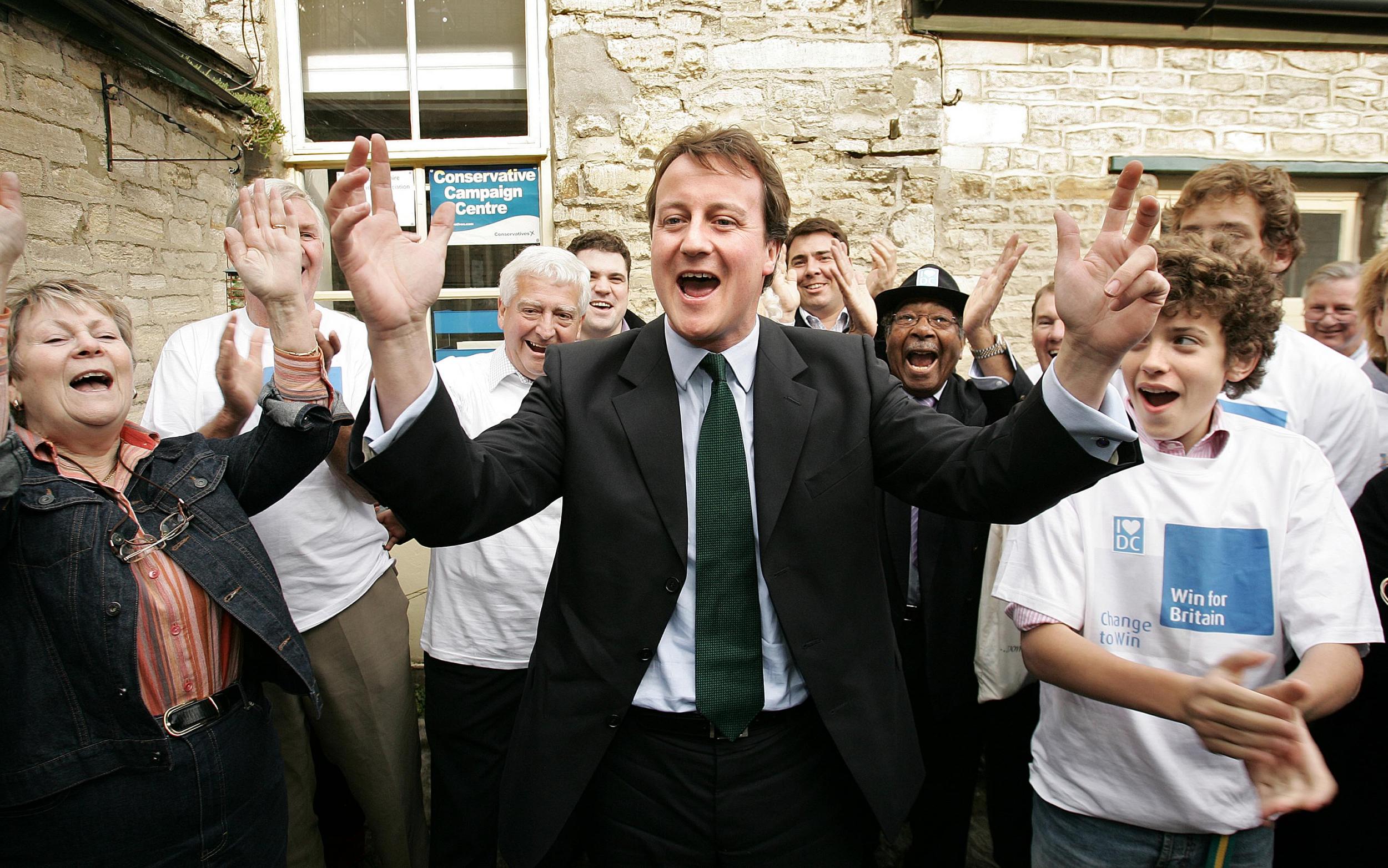
Of course Sunak is posh but, like Blair, he is classless-posh. Blair was derided as looking and sounding like a Tory, but he was the rootless product of the northern middle-class, and of an anti-establishment cast of mind. Sunak, both provincial and global, son of immigrants, has a similarly ambiguous position in the British class system.
Sunak’s grandfathers both emigrated from the Punjab to East Africa, then to Britain in the 1960s, bringing his parents with them. His “nanaji” (maternal grandfather) was appointed MBE “after decades and decades” working for the Inland Revenue, he said in an early interview. He was born in Southampton, where his father was a GP and his mother a pharmacist. She bought her own pharmacy when he was a teenager, and he did the accounts for her. He went to Winchester, the boarding school known (at least to me) for producing Hugh Gaitskell and Seumas Milne.
Unusually, he went as a day boy, because Winchester is only a few miles from the northern suburbs of Southampton. One friend of his from school says: “He was remarkably similar to today: hyper-competent, good at pretty much everything, with a gift for getting on with people.” A contemporary told the Evening Standard that at the age of 15 he surprised them by declaring he wanted to be the “first British Asian Tory prime minister”. My source says “Rish” was ambitious and “always interested in politics, but I don’t think I ever heard him say he wanted to be prime minister”.
This friend says “it was a sign of the esteem in which he was held that he was made head boy despite being a day boy”. Nine out of 10 boys at the school were boarders, yet it was Sunak who was chosen, by the headmaster, to be the school’s first Indian-origin head boy. In order to be head boy, you have to be the head of one of the houses: Sunak was head of Trant’s, the same house as Gaitskell.
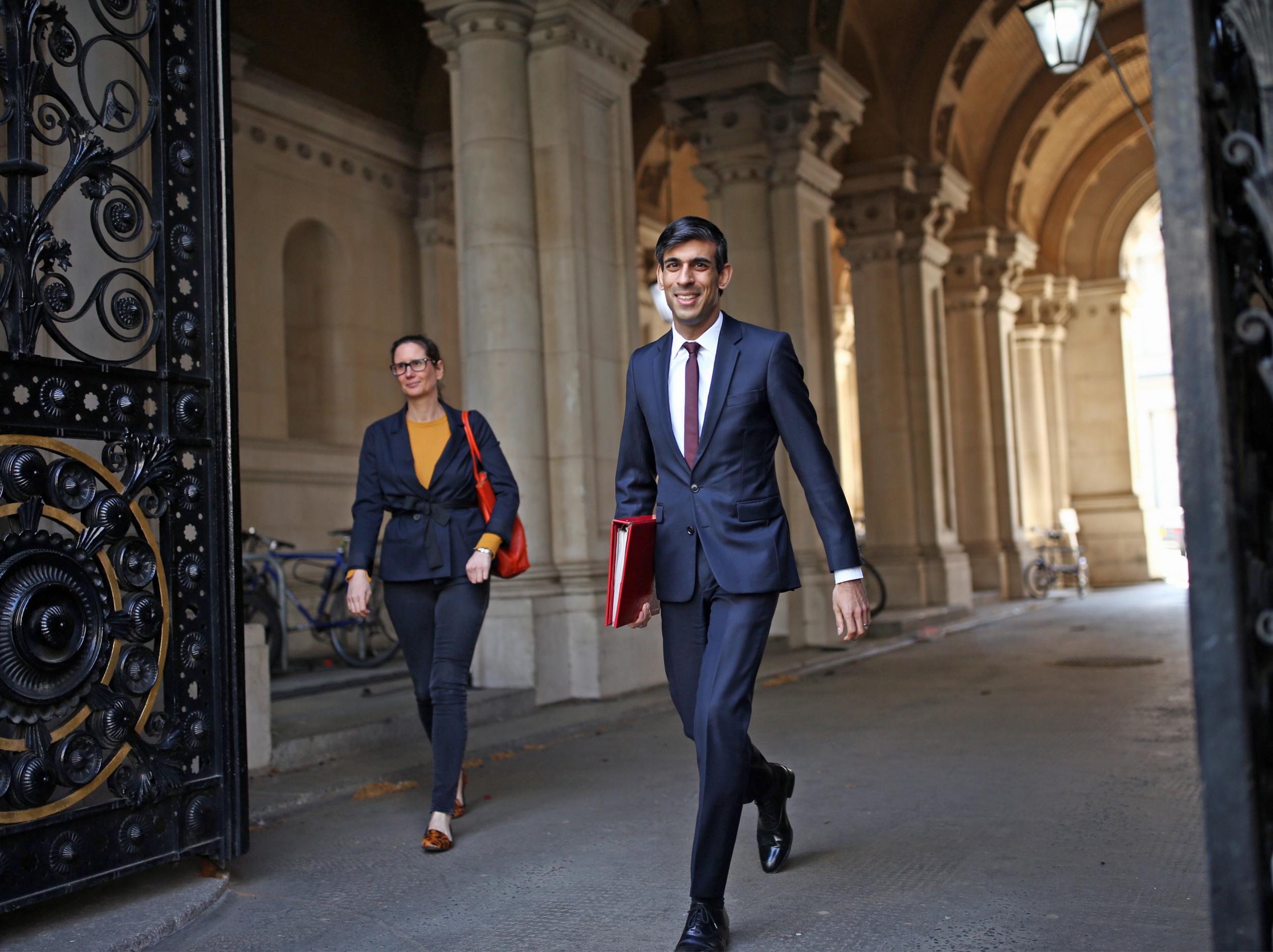
After finishing his A-levels (one of them was economics), he worked as a waiter at Kuti’s Brasserie in Southampton, where his family were regulars, as were Matt Le Tissier and many of the Southampton football team, who signed an 18th birthday card for him. Kuti Miah, the owner, told the Daily Star this year: “Rishi was always a bright boy and I knew he would go on to great things.”
You are responsible for your investments and either they’re good or they’re bad; things work out or they don’t. There are not many other people to blame, there’s nowhere to hide
He studied philosophy, politics and economics at Lincoln College, Oxford, graduating with a first in 2001, the same year as Annaliese Dodds, who is now opposite him in the House of Commons as shadow chancellor. She was at St Hilda’s College and also took a first, but she was active in student politics, elected president of the Oxford University Student Union, whereas he became president of a university investment club, in which members listened to talks from bankers and competed at financial trading games.
At all stages of his career, he was marked out by others for his ability and his ease with people. From Oxford he went to Goldman Sachs, the investment bank, for three years, followed by five years at The Children’s Investment fund, a hedge fund linked to a charity. Sir Chris Hohn, the billionaire who created the fund, praised him for his “strong analytical skills, high integrity and low ego”.
In an interview last year Sunak said he enjoyed managing investments: “You are highly accountable. That’s what I like about it,” he told Nick Robinson of the BBC. “You are responsible for your investments and either they’re good or they’re bad; things work out or they don’t. There are not many other people to blame, there’s nowhere to hide.”
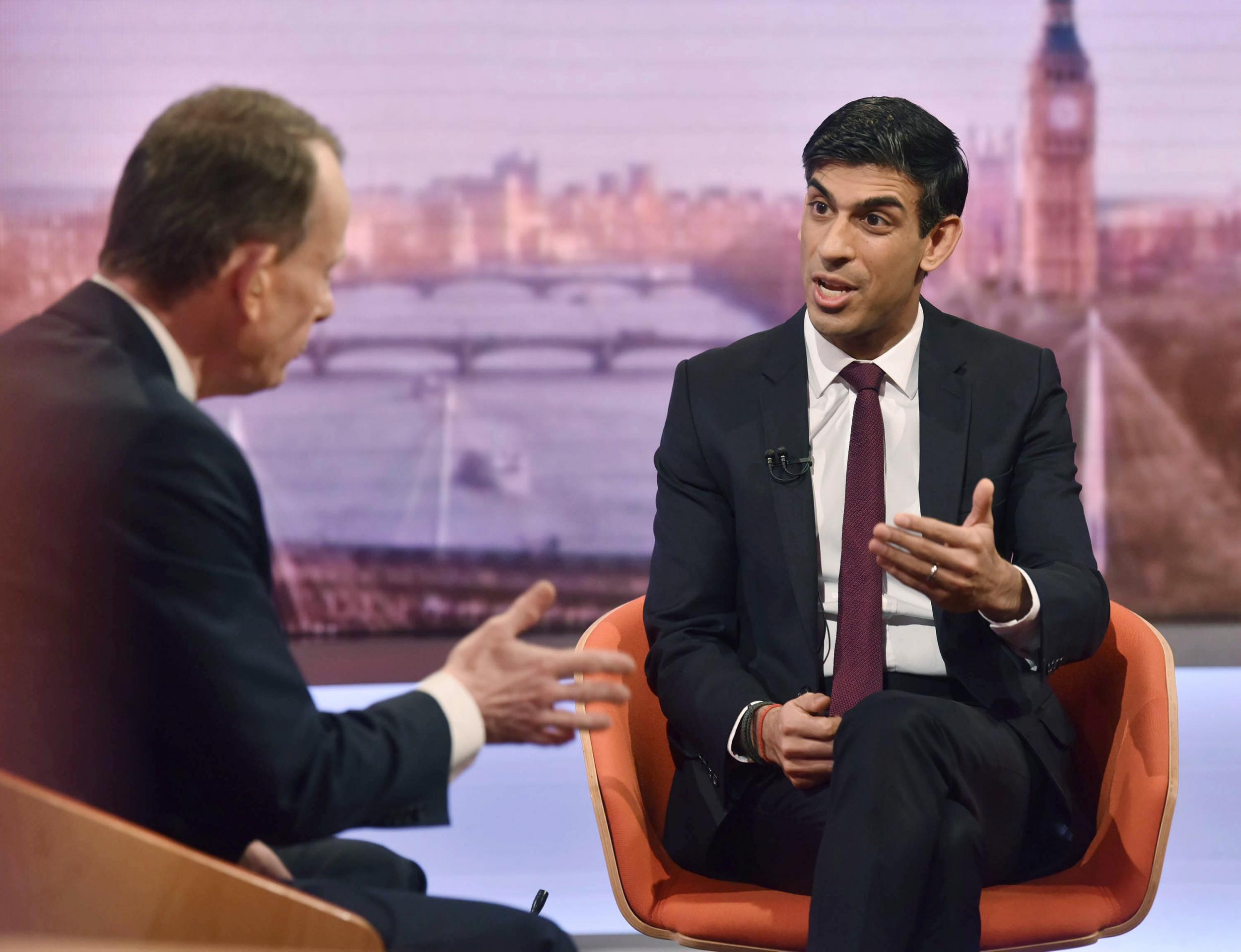
The rise of Rishi continued with a Fulbright scholarship to study for an MBA ast Stanford in 2006, where he met Akshata Murthy, daughter of one of the richest men in India. “He’s never had to struggle, it’s been a simple upward golden path.” Paddy Ashdown, the Liberal Democrat leader, was talking about Tony Blair in 1999, but he might have been describing Sunak’s career.
Akshata worked for a green tech investment fund in San Francisco for two years, and after she and Rishi married she started her own fashion label. Sunak joined another hedge fund, Theleme, set up by former colleagues, and within five years, aged just 34, was selected as the Conservative candidate for the safe seat of Richmond, Yorkshire, about to be vacated by William Hague at the 2015 election. Hague and the party hierarchy insist that Sunak won the selection on his merits.
The Richmond seat has been very good for him. If he had got a City commuter-belt seat he would have been a different MP. It’s rounded him out
“The Richmond seat has been very good for him,” says a friend. “If he had got a City commuter-belt seat he would have been a different MP. It’s rounded him out.” I am told that he has been surprised to discover that he likes spending time there – although buying a £1.5m Georgian mansion in 12 acres in Kirby Sigston in the constituency may have helped. But the northern seat serves a similar purpose to that of Sedgefield for Blair: it connects him to parts of his party that he’s not from. In Blair’s case it was the northern working class; in Sunak’s it is the agricultural interest and Yorkshire exceptionalism (hence the photo before the Budget of him making Yorkshire Tea for his officials in the Treasury).
There was then a pause on the “upward golden path”, as David Cameron failed to promote Sunak from the back benches, not even as a lowly parliamentary private secretary, often regarded as the first rung of the ministerial ladder. Some people assumed he already was a minister because he drove a Jaguar that looked like a government car. He let his frustration be known, without allowing himself to be co-opted into the ranks of the habitually disgruntled.
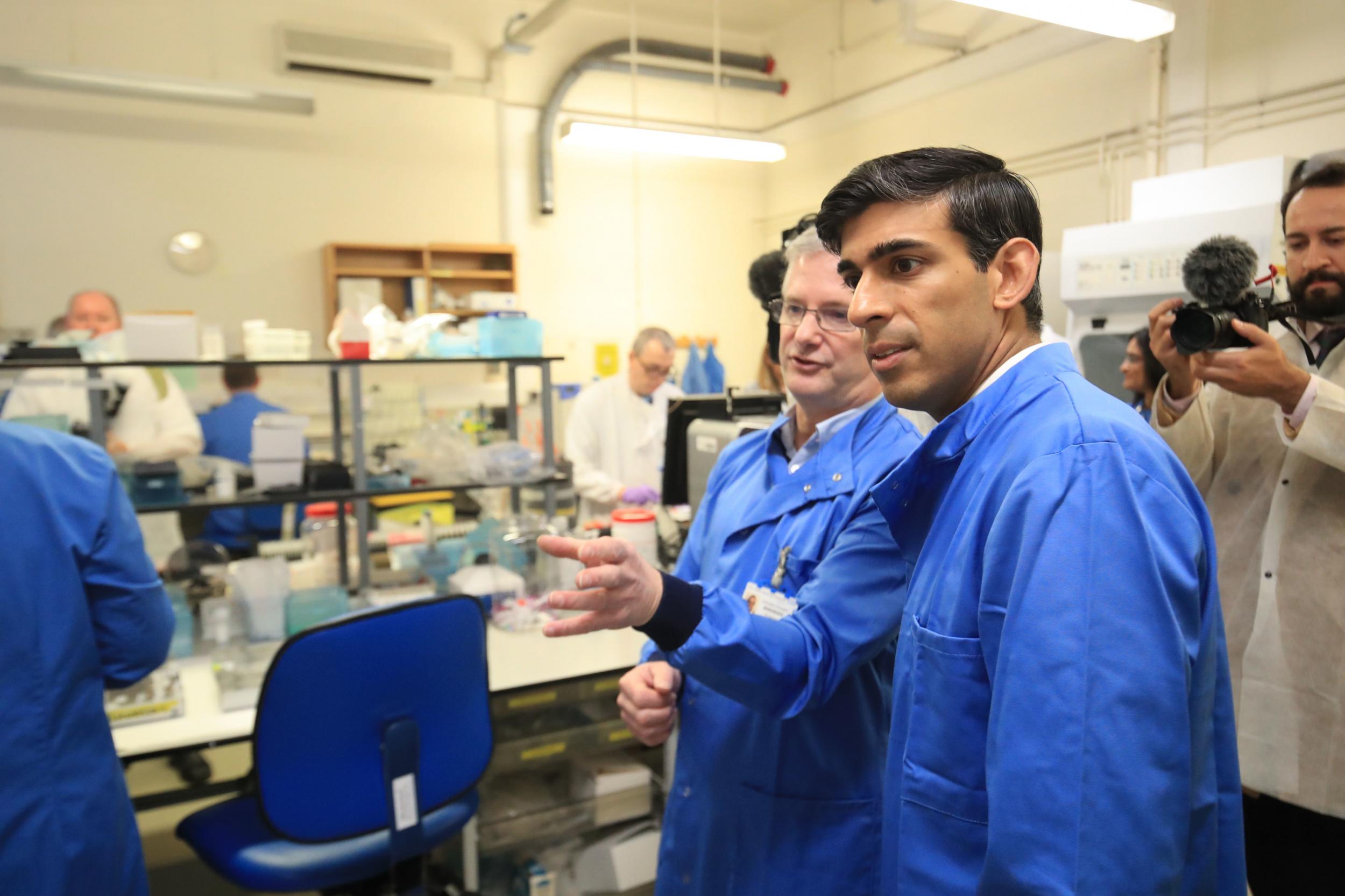
He voted Leave in the referendum; he wrote free-market pamphlets for the Centre for Policy Studies, the Thatcherite think tank; he was returned with an increased majority in the 2017 election; and he waited some more. Finally Theresa May appointed him a junior minister, for local government, in January 2018; and Sajid Javid was his secretary of state.
Last year, as May’s premiership disintegrated, he aligned himself with Boris Johnson, co-authoring an article in The Times with Oliver Dowden and Robert Jenrick headlined, “Only Boris Johnson can save us”, five days before nominations for the leadership contest opened. When Johnson became prime minister on 24 July, he was rewarded with a big promotion to chief secretary to the Treasury, with Javid as his boss again, and the rest we know.
At least, we know the part we have seen in public. We still don’t quite know why Javid was dumped. I think the simplest explanation is most plausible. Johnson and Dominic Cummings, the prime minister’s principal adviser, had their doubts about him, feeling that the chancellor had his doubts about their plans for a big splurge of public spending. Sunak, on the other hand, had impressed Johnson and Cummings just as he had impressed everyone else he had ever come across.
“You immediately sense he is the smartest person around the table,” said one student of the psychology of meetings, a neglected branch of political science. The ultimatum issued to Javid, to sack four of his five political advisers and replace them with new ones chosen by Johnson, was probably designed to be an offer he couldn’t accept.

Javid must have mixed feelings about the success of his apprentice. He is one of many who predicted great things for his junior minister – but he cannot have expected they would come at his own expense. The two got on well. They both have young children and enjoy a rivalry: Javid is a Trekkie; Sunak is “a huge Star Wars fan”. After the election in December, they went to see The Rise of Skywalker, and Javid said on Twitter: “The Force is strong in young Sunak.”
One journalist told me that he couldn’t find a single person to say anything bad about Sunak – “and goodness knows I’ve tried”. On the record, George Osborne said: “I know Rishi and I know he’s more than up to the role, even if it’s come unexpectedly early.” Off the record, senior and experienced Tories say things like: “He is one of the cleverest and most straightforward politicians I have ever dealt with.”
The only critical comments I have come across were from an anonymous Tory MP quoted by Paul Waugh of HuffPost, who accused him of succumbing to “Treasury orthodoxy”, which was a strange thing to say about a chancellor who had just announced unlimited borrowing to pay the wages of millions of workers. This same MP grumbled that he is “a technocrat – and he never spends any time in parliament, never spends time with colleagues.” Which I think probably needs a German word meaning “to praise someone by mistake”.
A Tory MP I spoke to offered a more balanced assessment: “He doesn’t know anyone in the House of Commons. He doesn’t do that bit of politics. That is an advantage in one context, but a disadvantage in another.”
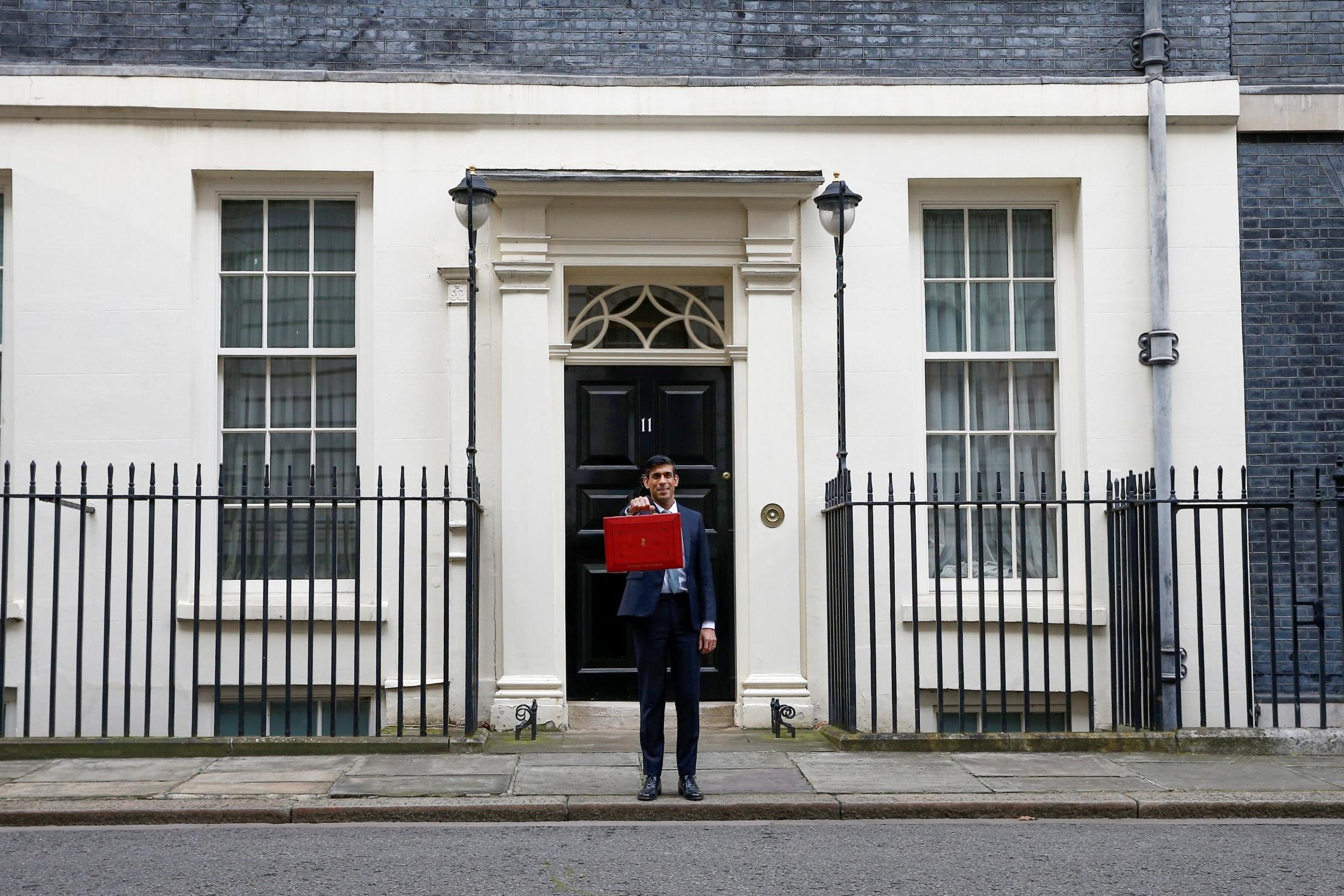
Since he became chancellor three months ago, his image has been bolstered by what the Financial Times calls “perhaps the slickest social media operation in Whitehall”. Each of Sunak’s announcements is now accompanied by social media slogans bearing his signature, a compact squiggle, over the legend, “chancellor” in capital letters. These are the work of Cass Horowitz, Sunak’s 29-year-old media adviser, hired by Cummings, who is also credited with naming the £8bn of emergency funding for companies “bounce back loans”.
Last month Sunak hired Allegra Stratton, formerly of ITV News and BBC Newsnight, as his director of communications – again with Cummings’s approval. Paradoxically, Cummings has, by trying to ensure close working between Nos 10 and 11 Downing Street, helped polish the image of someone who is now the most obvious rival to the prime minister.
Even the best media team, however, has failed to curtail Sunak’s main communications weakness, a tendency to lapse into cringeworthy management-speak. “We can bridge through this crisis,” he said, at the same daily Downing Street news conference at which he delivered those inspiring lines about thinking first of others and acting with decency. In the House of Commons this week he said the extension of the furlough scheme “gives companies enough of a runway to grow back into a safe space”. That is when he sounds like a bloodless technocrat, but even the fine words of standing together and common sacrifice leave people wondering what it is that he believes in.
His recorded political opinions have always been in the conventional mainstream of the party, which nowadays includes having voted Leave. Beyond that, he shares with the early Blair and early Cameron the huge advantage of not being known to believe in very much. One Tory MP described him as a “non-ideological Thatcherite, if that makes sense”.
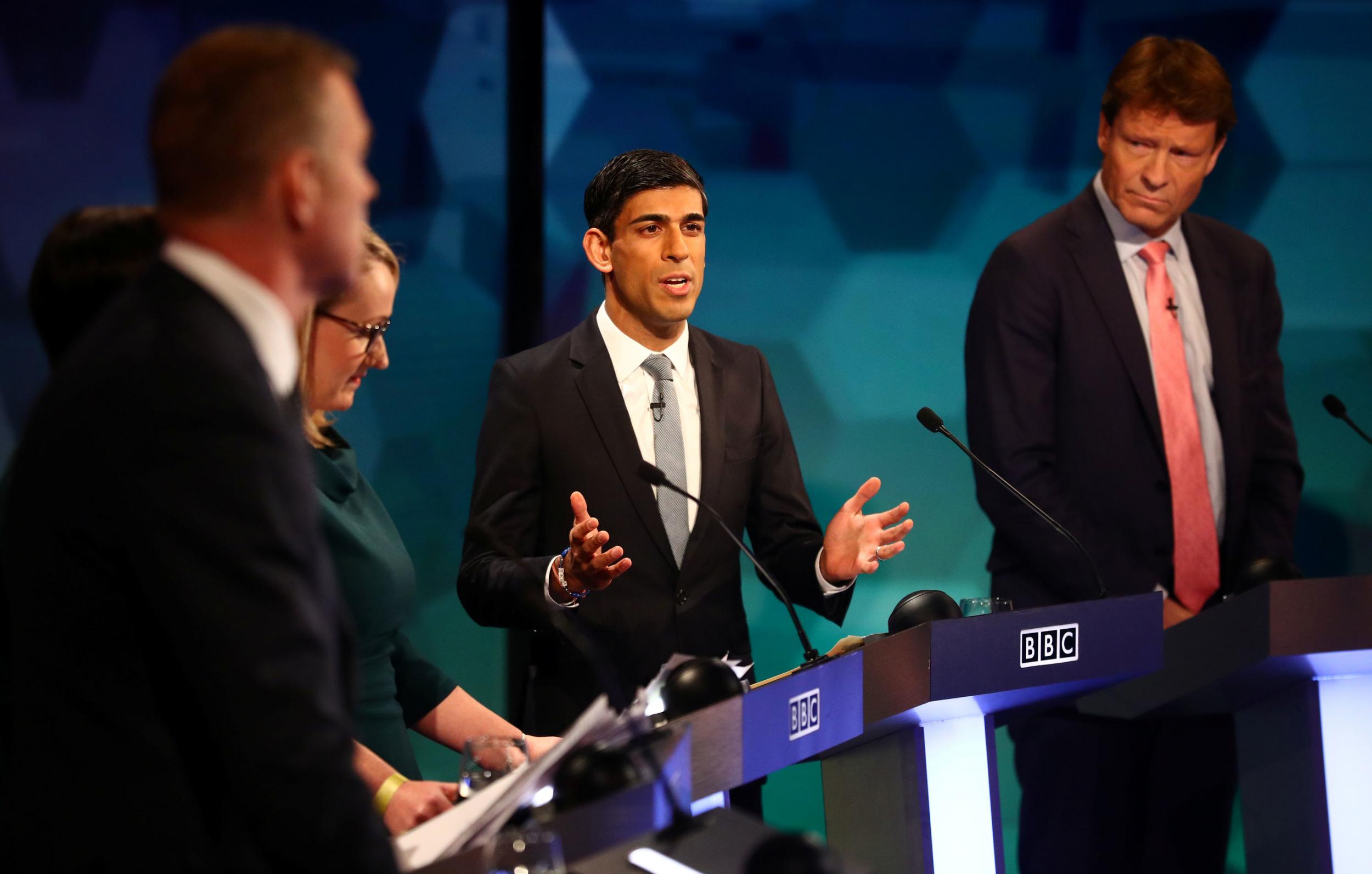
It is in Sunak’s explanation to Nick Robinson of how he made up his mind on Brexit that we have the most revealing insight into his character. “I analysed it. I looked through the numbers,” he said. Whereas for most people membership of the European Union is a gut question of identity, for him it was like an investment decision. “When I was investing, I was investing for the long term,” he said. He mentioned the global perspective he gained from working in California, and said he thought Brexit was a “once in a generation opportunity” to adjust to the pace of change accelerating around the world. “Being independent, having the flexibility and nimbleness to react and adapt had to be of enormous value to us.”
He responded to the coronavirus crisis in a similar way. “It is unusual for a chancellor to behave like an analyst,” says a Tory MP, one who compares Sunak to Nigel Lawson, the fearless intellect of economic reconstruction in the Eighties. Sunak seems to combine a grasp of detail with the intellectual confidence to break with convention. What is so significant about the furlough scheme is that many Tories – and many Treasury officials – would have resisted it as fiscally irresponsible. He seems to have started from first principles, asking the big question about the dangers of recession, and concluding that what had to be avoided at all costs was the long-term scarring caused by mass unemployment.
If the British economy recovers well from the great shutdown, it will be Sunak’s triumph. Then we might find out what happens when the ambition of the apprentice comes into conflict with the interests of the prime minister.
Join our commenting forum
Join thought-provoking conversations, follow other Independent readers and see their replies
Comments